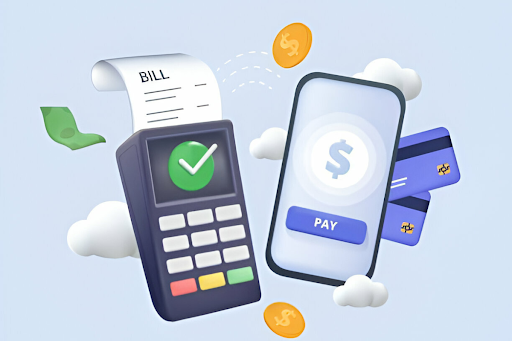In today’s digital age, the way businesses handle transactions has evolved significantly. Payment processing services have become the backbone of modern commerce, facilitating the seamless transfer of funds between buyers and sellers. This blog delves into the intricacies of payment processing, highlighting key aspects such as online payments, retail payments, and mobile payments.
What is Payment Processing?
Payment processing refers to the automated system that handles the transactions between a buyer and a seller. This process involves several steps, including authorization, funding, and settlement. The ultimate goal is to ensure that the transfer of funds from the buyer’s account to the seller’s account is secure, efficient, and reliable.
The Evolution of Online Payments
The advent of the internet has revolutionized the way we conduct transactions. Online payments have become ubiquitous, driven by the rise of e-commerce and the need for fast, convenient purchasing methods. Online payment processing services enable customers to pay for goods and services through websites and mobile apps using credit cards, debit cards, and digital wallets.
Online payment gateways, such as PayPal, Stripe, and Square, act as intermediaries between the customer’s bank and the merchant’s bank, ensuring that sensitive information is encrypted and securely transmitted. These gateways offer various features like fraud detection, recurring billing, and multi-currency support, making them indispensable for businesses of all sizes.
Retail Payments: Bridging the Gap Between Traditional and Digital
Retail payments encompass transactions made in physical stores, integrating both traditional and modern payment methods. While cash remains a common mode of payment, there’s a growing shift towards card payments and contactless options. Payment processing services in retail settings typically involve point-of-sale (POS) systems that handle card swipes, taps, and mobile payments.
POS systems have evolved from simple cash registers to sophisticated platforms that integrate inventory management, customer relationship management (CRM), and analytics. Companies like Clover and Square provide comprehensive POS solutions that cater to small and large retailers alike, ensuring smooth and secure retail payment transactions.
The Rise of Mobile Payments
Mobile payments are at the forefront of the payment processing revolution. With the proliferation of smartphones, consumers are increasingly using their mobile devices to make payments both online and in physical stores. Mobile payment solutions like Apple Pay, Google Wallet, and Samsung Pay use near-field communication (NFC) technology to enable secure, contactless transactions.
The convenience of mobile payments extends beyond retail; it includes peer-to-peer (P2P) payments, bill payments, and even international remittances. Mobile wallets store payment information securely, allowing users to complete transactions with a simple tap or scan. This shift towards mobile payments is driven by the need for speed, convenience, and enhanced security.
Key Considerations for Choosing a Payment Processing Service
When selecting a payment processing service, businesses need to consider several factors to ensure they choose the best fit for their needs:
Security: Ensuring that customer data is protected through encryption and compliance with standards like PCI DSS (Payment Card Industry Data Security Standard) is paramount.
Fees: Different payment processors charge various fees, including transaction fees, monthly fees, and setup fees. Understanding these costs is crucial for maintaining profitability.
Integration: The payment processor should seamlessly integrate with existing systems, such as e-commerce platforms, accounting software, and POS systems.
Customer Support: Reliable customer support can help resolve issues quickly, minimizing disruptions to business operations.
Global Reach: For businesses looking to expand internationally, choosing a payment processor with multi-currency support and global reach is essential.
The Future of Payment Processing
The payment processing landscape is continuously evolving, driven by technological advancements and changing consumer preferences. Innovations like blockchain technology and cryptocurrencies are poised to redefine how transactions are conducted, offering new levels of security and efficiency.
Moreover, the growing adoption of artificial intelligence (AI) and machine learning (ML) in payment processing is enhancing fraud detection and prevention, personalizing customer experiences, and optimizing transaction processes.
Conclusion
As we navigate the complexities of modern commerce, it is clear that payment processing services play a crucial role in facilitating smooth and secure transactions. From online payments to retail payments and the burgeoning field of mobile payments, businesses must stay abreast of technological advancements to remain competitive. Embracing mobile payments, in particular, offers unparalleled convenience and security, positioning businesses to meet the evolving demands of consumers in an increasingly digital world.

